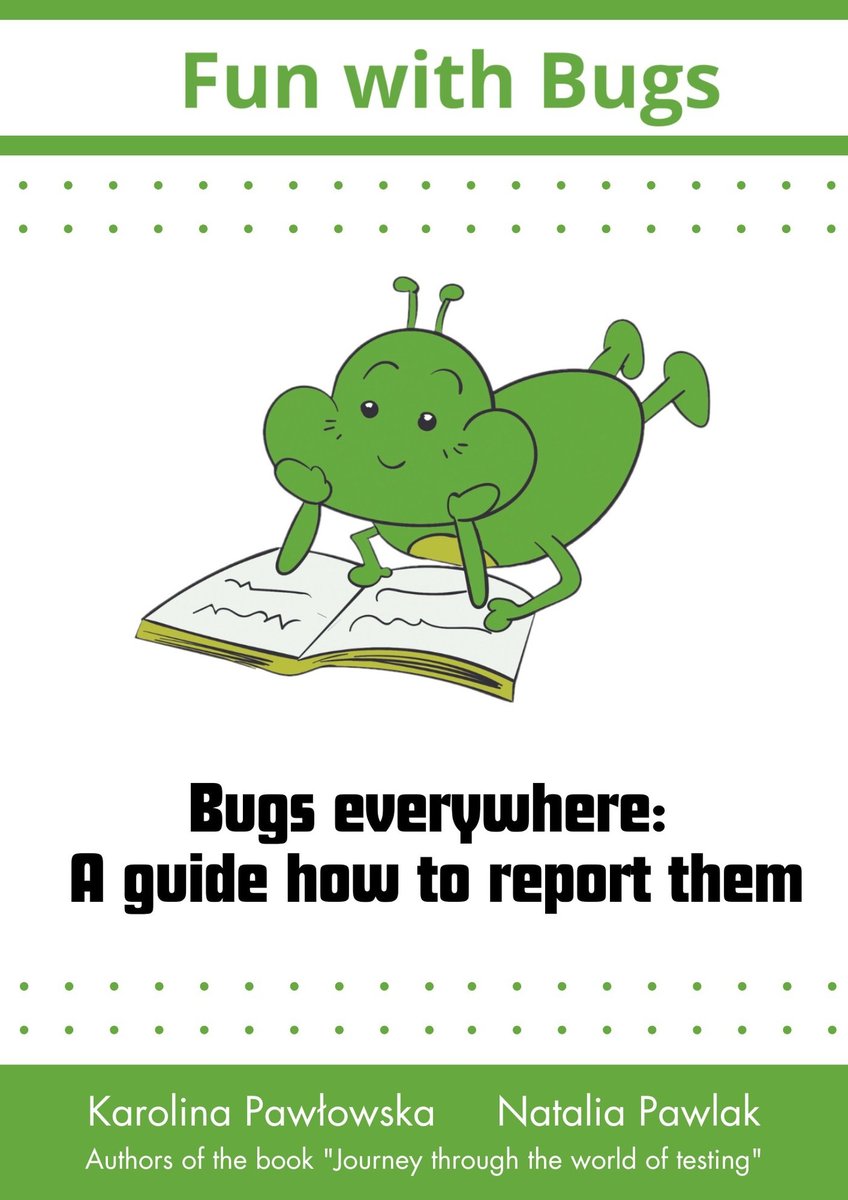PIPI
J
| Szczegóły | |
|---|---|
| Tytuł | PIPI |
| Rozszerzenie: | |
PIPI PDF - Pobierz:
Pobierz PDF
PIPI - podejrzyj 20 pierwszych stron:
Strona 1
Pippi Longstocking
Astrid Lindgren
The beloved story of a spunky young girl and her hilarious escapades. Tommy
and his sister Annika have a new neighbor and her name is Pippi Longstocking.
She has crazy red pigtails, no parents to tell her what to do, a horse that lives on
her porch and a pet monkey named Mister Nilsson. Whether Pippi's scrubbing
her floors, doing arithmetic, or stirring things up at a fancy tea party her flair
for the outrageous always seems to lead to another adventure.
1. Pippi Moves into Villa Villekulla
Way out at the end of a tiny little town was an old overgrown garden, and in the
garden was an old house, and in the house lived Pippi Longstocking. She was
nine years old, and she lived there all alone. She had no mother and no father,
and that was of course very nice because there was no one to tell her to go to
bed just when she was having the most fun, and no one who could make her
take cod liver oil when she much preferred caramel candy.
Once upon a time Pippi had had a father of whom she was extremely fond.
Naturally she had had a mother too, but that was so long ago that Pippi didn't
remember her at all. Her mother had died when Pippi was just a tiny baby and
lay in a cradle and howled so that nobody could go anywhere near her. Pippi
was sure that her mother was now up in Heaven, watching her little girl through
a peephole in the sky, and Pippi often waved up at her and called, "Don't you
worry about me. I'll always come out on top."
Pippi had not forgotten her father. He was a sea captain who sailed on the great
ocean, and Pippi had sailed with him in his ship until one day her father was
blown overboard in a storm and disappeared. But Pippi was absolutely certain
that he would come back. She would never believe that he had drowned; she
was sure he had floated until he landed on an island inhabited by cannibals.
And she thought he had become the king of all the cannibals and went around
with a golden crown on his head all day long.
"My papa is a cannibal king; it certainly isn't every child who has such a stylish
papa," Pippi used to say with satisfaction. "And as soon as my papa has built
himself a boat he will come and get me, and I'll be a cannibal princess. Heigh-
ho, won't that be exciting!"
Strona 2
Her father had bought the old house in the garden many years ago. He thought
he would live there with Pippi when he grew old and couldn't sail the seas any
longer. And then this annoying thing had to happen, that he was blown into the
ocean, and while Pippi was waiting for him to come back she went straight
home to Villa Villekulla. That was the name of the house. It stood there ready
and waiting for her. One lovely summer evening she had said good-by to all the
sailors on her father's boat. They were all fond of Pippi, and she of them.
"So long, boys." she said and kissed each one on the forehead. "Don't you
worry about me. I'll always come out on top."
Two things she took with her from the ship: a little monkey whose name was
Mr. Nilsson--he was a present from her father--and a big suitcase full of gold
pieces. The sailors stood upon the deck and watched as long as they could see
her. She walked straight ahead without looking back at all, with Mr. Nilsson on
her shoulder and her suitcase in her hand.
"A remarkable child," said one of the sailors as Pippi disappeared in the
distance.
He was right. Pippi was indeed a remarkable child. The most remarkable thing
about her was that she was so strong. She was so very strong that in the whole
wide world there was not a single police officer as strong as she. Why, she
could lift a whole horse if she wanted to! And she wanted to. She had a horse of
her own that she had bought with one of her many gold pieces the day she came
home to Villa Villekulla. She had always longed for a horse, and now here he
was, living on the porch. When Pippi wanted to drink her afternoon coffee
there, she simply lifted him down into the garden.
Beside Villa Villekulla was another garden and another house. In that house
lived a father and mother and two charming children, a boy and a girl. The
boy's name was Tommy and the girl's Annika. They were good, well brought
up, and obedient children. Tommy would never think of biting his nails, and he
always did exactly what his mother told him to do. Annika never fussed when
she didn't get her own way, and she always looked pretty in her little well-
ironed cotton dresses; she took the greatest care not to get than dirty. Tommy
and Annika played nicely with each other in their garden, but they had often
wished for a playmate. While Pippi was still sailing on the ocean with her
father, they often used to hang over the fence and say to each other, "Isn't it
silly that nobody ever moves into that house. Somebody ought to live there
somebody with children."
Strona 3
On that lovely summer evening when Pippi for the first time stepped over the
threshold of Villa Villekulla, Tommy and Annika were not at home. They had
gone to visit their grandmother for a week; and so they had no idea that
anybody had moved into the house next door. On the first day after they came
home again they stood by the gate, looking out onto the street, and even then
they didn't know that there actually was a playmate so near. Just as they were
standing there considering what they should do and wondering whether
anything exciting was likely to happen or whether it was going to be one of
those dull days when they couldn't think of anything to play--just then the gate
of Villa Villekulla opened and a little girl stepped out. She was the most
remarkable girl Tommy and Annika had ever seen. She was Miss Pippi
Longstocking out for her morning promenade. This is the way she looked:
Her hair, the color of a carrot, was braided in two tight braids that stuck straight
out. Her nose was the shape of a very small potato and was dotted all over with
freckles. It must be admitted that the mouth under this nose was a very wide
one, with strong white teeth. Her dress was rather unusual. Pippi herself had
made it. She had meant it to be blue, but there wasn't quite enough blue cloth,
so Pippi had sewed little red pieces on it here and there. On her long thin legs
she wore a pair of long stockings, one brown and the other black, and she had
on a pair of black shoes that were exactly twice as long as her feet. These shoes
her father had bought for her in South America so that Pippi would have some-
thing to grow into, and she never wanted to wear any others.
But the thing that made Tommy and Annika open their eyes widest of all were
the monkey sitting on the strange girl's shoulder. It was a little monkey, dressed
in blue pants, yellow jacket, and a white straw hat.
Pippi walked along the street with one foot on the sidewalk and the other in the
gutter. Tommy and Annika watched as long as they could see her. In a little
while she came back, and now she was walking backward. That was because
she didn't want to turn around to get home. When she reached Tommy's and
Annika's gate she stopped.
The children looked at each other in silence. At last Tommy spoke. "Why did
you walk backward?"
"Why did I walk backwards?" said Pippi. "Isn't this a free country? Can't a
person walk any way she wants to? For that matter, let me tell you that in Egypt
everybody walks that way, and nobody thinks it's the least bit strange."
"How do you know?" asked Tommy. "You've never been in Egypt, have you?"
Strona 4
"I've never been in Egypt? Indeed I have. That's one thing you can be sure of. I
have been all over the world and seen many things stranger than people
walking backward. I wonder what you would have said if I had come along
walking on my hands the way they do in Farthest India."
"Now you must be lying," said Tommy.
Pippi thought a moment. "You're right," she said sadly, "I am lying."
"It's wicked to lie," said Annika, who had at last gathered up enough courage to
speak.
"Yes, it's very wicked to lie," said Pippi even more sadly. "But I forget it now
and then. And how can you expect a little child whose mother is an angel and
whose father is king of a cannibal island and who herself has sailed on the
ocean all her life -- how can you expect her to tell the truth always? And for
that matter," she continued, her whole freckled face lighting up, "let me tell you
that in the Congo there is not a single person who tells the truth. They lie all
day long. Begin at seven in the morning and keep on until sundown. So if I
should happen to lie now and then, you must try to excuse me and to remember
that it is only because I stayed in the Congo a little too long. We can be friends
anyway, can't we?"
"Oh, sure," said Tommy and realized suddenly that this was not going to be one
of those dull days.
"By the way, why couldn't you come and have breakfast with me?" asked
Pippi.
"Why not?" said Tommy. "Come on, let's go."
"Oh, yes, let's," said Annika.
"But first 1 must introduce you to Mr. Nilsson," said Pippi, and the little
monkey took off his cap and bowed politely.
Then they all went in through Villa Villekulla's tumbledown garden gate, along
the gravel path, bordered with old moss-covered trees--really good climbing
trees they seemed to be--up to the house, and onto the porch. There stood the
horse, munching oats out of a soup bowl.
Strona 5
"Why do you have a horse on the porch?" asked Tommy. All horses he knew
lived in stables.
"Well," said Pippi thoughtfully, "he'd be in the way in the kitchen, and he
doesn't like the parlor.
Tommy and Annika patted the horse and then went on into the house. It had a
kitchen, a parlor, and a bedroom. But it certainly looked as if Pippi had
forgotten to do her Friday cleaning that week. Tommy and Annika looked
around cautiously just in case the king of the Cannibal Isles might be sitting in
a corner somewhere. They had never seen a cannibal king in all their lives. But
there was no father to be seen, nor any mother either.
Annika said anxiously, "Do you live here all alone?"
"Of course not!" said Pippi. "Mr. Nilsson and the horse live here too."
"Yes, but I mean don't you have any mother or father here?"
"No, not the least little tiny bit of a one," said Pippi happily.
"But who tells you when to go to bed at night and things like that?" asked
Annika.
"I tell myself," said Pippi. First I tell myself in a nice friendly way; and then, if
I don't mind, I tell myself again more sharply; and if I still don't mind, then I'm
in for a spanking--see?"
Tommy and Annika didn't see at all, but they thought maybe it was a good way.
Meanwhile they had come out into the kitchen, and Pippi cried,
Now we're going to make a pancake, Now there's going to be a pancake. Now
we're going to fry a pancake.
Then she took three eggs and threw them up in the air. One fell down on her
head and broke so that the yolk ran into her eyes, but the others she caught
skillfully in a bowl, where they smashed to pieces.
"I always did hear that egg yolk was good far the hair," said Pippi, wiping her
eyes. "You wait and see--mine will soon begin to grow so fast it will crackle.
As a matter of fact, in Brazil all the people go about with eggs in their hair.
And there are no bald-headed people. Only once was there a man who was so
Strona 6
foolish that he ate his eggs instead of rubbing them on his hair. He became
completely bald, and when he showed himself on the street there was such a
riot that the police were called out."
While she was speaking Pippi had neatly picked the eggshells out of the bowl
with her fingers. Now she took a bath brush that hung on the wall and began to
beat the pancake batter so hard that it splashed all over the walls. At last she
poured what was left onto a griddle that stood on the stove.
When the pancake was brown on one side she tossed it halfway up to the
ceiling, so that it turned right around in the air, and then she caught it on the
griddle again. And when it was ready she threw it straight across the kitchen
right onto a plate that stood on the table.
"Eat!" she cried. "Eat before it gets cold!" And Tommy and Annika ate and
thought it a very good pancake.
Afterward Pippi invited them to step into the parlor. There was only one piece
of furniture in there. It was a huge chest with many tiny drawers. Pippi opened
the drawers and showed Tommy and Annika all the treasures she kept there.
There were wonderful birds' eggs, strange shells and stones, pretty little boxes,
lovely silver mirrors, pearl necklaces, and many other things that Pippi and her
father had bought on their journeys around the world. Pippi gave each of her
new playmates a little gift to remember her by. Tommy got a dagger with a
shimmering mother-of-pearl handle and Annika, a little box with a cover
decorated with pink shells. In the box there was a ring with a green stone.
'Suppose you go home now," said Pippi, "so that you can come back tomorrow.
Because if you don't go home you can't come back, and that would be a
shame."
Tommy and Annika agreed that it would indeed. So they went home--past the
horse, who had now eaten up all the oats, and out through the gate of Villa
Villekulla. Mr. Nilsson waved his hat at them as they left.
2. Pippi is a Thing-Finder and gets into a
Fight
Annika woke up early the next morning. She jumped out of bed and ran over to
Tommy.
Strona 7
"Wake up, Tommy," she cried, pulling him by the arm. "Wake up and let's go
and see that funny girl with the big shoes."
Tommy was wide-awake in an instant.
"I knew, even while I was sleeping, that something exciting was going to
happen today, but I didn't remember what it was," he said as he yanked off his
pajama jacket. Off they went to the bathroom, washed themselves and brushed
their teeth much faster than usual, had their clothes on in a twinkling, and a
whole hour before their mother expected them came sliding down the banister
and landed at the breakfast table. Down they sat and announced that they
wanted their hot chocolate right at that very moment.
"What's going to happen today that you're in such a hurry?" asked their mother.
"We're going to see the new girl next door," said Tommy.
"We may stay all day," said Annika.
That morning Pippi was busy making pepparkakor--a kind of Swedish cookie.
She had made an enormous amount of dough and rolled it out on the kitchen
floor.
"Because," said Pippi to her little monkey, "what earthly use is a baking board
when one plans to make at least five hundred cookies?"
And there she lay on the floor, cutting out cookie hearts for dear life.
"Stop climbing around in the dough, Mr. Nilsson." she said crossly just as the
doorbell rang.
Pippi ran and opened the door. She was white as a miller from top to toe, and
when she shook hands heartily with Tommy and Annika a whole cloud of flour
blew over them.
"So nice you called," she said and shook her apron - so there came another
cloud of flour. Tommy and Annika got so much in their throats that they could
not help coughing.
"What are you doing?" asked Tommy.
Strona 8
"Well, if I say that I'm sweeping the chimney, you won't believe me, you're so
clever," said Pippi. "Fact is, I'm baking. But I'll soon be done. You can sit on
the wood-box for a while."
Pippi could work fast, she could. Tommy and Annika sat and watched how she
went through the dough, how she threw the cookies onto the cookie pans, and
swung the pans into the oven. They thought it was as good as a circus.
"Done!" said Pippi at last and shut the oven door on the last pans with a bang.
"What are we going to do now?" asked Tommy.
"I don't know what you are going to do," said Pippi, "but I know I can't lie
around and be lay. I am a Thing-Finder, and when you're a Thing-Finder you
don't have a minute to spare."
"What did you say you are?" asked Annika.
"A Thing-Finder." "What's that?" asked Tommy.
"Somebody who hunts for things, naturally. What else could it be?" said Pippi
as she swept all the flour left on the floor into a little pile.
"The whole world is full of things, and somebody has to look for them. And
that's just what a Thing-Finder does," she finished.
"What kind of things?" asked Annika.
"Oh, all kinds," said Pippi. "Lumps of gold, ostrich feathers, dead rats, candy
snap crackers, little tiny screws, and things like that."
Tommy and Annika thought it sounded as if it would be fun and wanted very
much to be Thing-Finders too, although Tommy did say he hoped he'd find a
lump of gold and not a little tiny screw.
"We shall see what we shall see," said Pippi. "One always finds something. But
we've got to hurry up and get going so that other Thing-Finders don't pick up
all the lumps of gold around here before we get them."
All three Thing-Finders now set out. They decided that it would be best to
begin hunting around the houses in the neighborhood, because Pippi said that
although it could perfectly well happen that one might find a little screw deep
Strona 9
in the woods, still the very best things were usually found where people were
living.
"Though, for that matter," she said, "I've seen it the other way around too. I
remember once when I was out hunting for things in the jungles of Borneo.
Right in the heart of the forest, where no human being had ever before set foot,
what do you suppose I found? Why, a very fine wooden leg! I gave it away
later to a one-legged old man, and he said that a wooden leg like that wasn't to
be had for love or money."
Tommy and Annika looked at Pippi to see just how a Thing-Finder acted. Pippi
ran from one side of the road to the other, shaded her eyes with her hand, and
hunted and hunted. Sometimes she crawled about on her hands and knees, stuck
her hands in between the pickets of a fence, and then said in a disappointed
tone, "Oh, dear! I was sure I saw a lump of gold."
"May we really take everything we find?" asked Annika.
"Yes, everything that is lying on the ground," said Pippi.
Presently they came to an old man lying asleep on the lawn outside his cottage.
"There," said Pippi, "that man is lying on the ground and we have found him.
Well take him!"
Tommy and Annika were utterly horrified.
"No, no, Pippi, we can't take an old gentleman! We couldn't possibly," said
Tommy. "Anyway, whatever would we do with him?"
"What would we do with him? Oh, there are plenty of things we could do with
him. We could keep him in a little rabbit hutch instead of a rabbit and feed him
on dandelions. But if you don't want to, I don't care. Though it does bother me
to think that some other Thing-Finder may come along and grab him."
They went on. Suddenly Pippi gave a terrific yell. "Well, I never saw the like,"
she cried, as she picked up a large, rusty old tin can from the grass. "What a
find! What a find! Gang, that's something you can never have too many of."
Tommy looked at the can doubtfully. "What can you use it for?"
Strona 10
"Oh, you can use it in all sorts of ways," said Pippi. "One way is to put cookies
in it. Then it becomes a delightful Jar with Cookies. Another way is not to put
cookies in it. Then it becomes a Jar without Cookies. That certainly isn't quite
so delightful, but still that's good too."
She examined the can, which was indeed rusty and had a hole in the bottom.
"It looks almost as if this were a jar without cookies," she said thoughtfully.
"But you can put it over your head and pretend that it is midnight."
And that is just what she did. With the can on her head she wandered around
the block like a little metal tower and never stopped until she stumbled over a
low wire fence and fell flat on her stomach. There was a big crash when the tin
can hit the ground.
"Now, see that!" said Pippi and took off the can! If I hadn't had this thing on
me, I'd have fallen flat on my face and hurt myself terribly!"
"Yes," said Annika, "but if you hadn't had the can on your head, then you
wouldn't have tripped on the wire fence in the first place."
Before she had finished speaking there was another triumphant cry from Pippi,
who was holding up an empty spool of thread.
"This seems to be my lucky day," she said.
"Such a sweet, sweet little spool to blow soap bubbles with or to hang around
my neck for a necklace. I'll go home and make one this very minute."
However, just at that moment the gate of one of the cottages nearby opened and
a boy came rushing out. He looked scared, and that was no wonder, because
head over heels after him came five other boys. They soon caught him and
pushed him against the fence, and all five began to punch and hit him. He cried
and held his arms in front of his face to protect himself.
"Give it to him! Give it to him!" cried the oldest and strongest of the boys, "so
that he’ll never dare to show himself on this street again."
"Oh," said Annika, "it's Willie they're hurting. Oh, how can they be so mean?"
"It's that awful Bengt. He's always in a fight," said Tommy. "And five against
one--what cowards!"
Strona 11
Pippi went up to the boys and tapped Bengt on the back with her forefinger.
"Hello, there," she said. "What's the idea? Are you trying to make hash out of
little Willie with all five of you jumping on him at once?"
Bengt turned around and saw a little girl he had never seen before: a wild-
looking little stranger who dared to touch him. For a while he stood and gaped
at her in astonishment; then a broad grin spread over his face. "Boys," he said,
"boys, let Willie alone and take a look at this girl. What a babe!"
He slapped his knees and laughed, and in an instant they had all docked around
Pippi, all except Willie, who wiped away his tears and walked cautiously over
to stand beside Tommy.
"Have you ever seen hair like hers? Red as fire! And such shoes," Bengt
continued. "Can't I borrow one? I'd like to go out rowing and I haven't any
boat." He took hold of one of Pippi's braids but dropped it instantly and cried,
"Ouch, I burned myself."
Then all five boys joined hands around Pippi, jumping up and down and
screaming, "Redhead! Redhead!"
Pippi stood in the middle of the ring and smiled in the friendliest way. Bengt
had hoped she would get mad and begin to cry. At least she ought to have
looked scared. When nothing happened he gave her a push.
"I don't think you have a very nice way with ladies," said Pippi. And she lifted
him in her strong arms--high in the air--and carried him to a birch tree and hung
him over a branch. Then she took the next boy and hung him over another
branch. The next one she set on a gatepost out side a cottage, and the next she
threw right over a fence so that he landed in a flowerbed. The last of the
fighters she put in a tiny toy cart that stood by the road. Then Pippi, Tommy,
Annika, and Willie stood and looked at the boys for a while. The boys were
absolutely speechless with fright.
And Pippi said, "You are cowards. Five of you attacking one boy! That's
cowardly. Then you begin to push a helpless little girl around. Oh, how mean!"
"Come now, well go home," she said to Tommy and Annika. And to Willie, "If
they try to hurt you again, you come and tell me." And to Bengt, who sat up in
the tree and didn't dare to stir, she said, is there anything else you have to say
about my hair or my shoes? If so, you'd better say it now before I go home."
Strona 12
But Bengt had nothing more to say about Pippi's shoes or about her hair either.
So Pippi took her can in one hand and her spool in the other and went away,
followed by Tommy and Annika.
When they were back home in Pippi's garden, Pippi said, "Dear me, how awful!
Here I found two beautiful things and you didn't get anything. You must hunt a
little more. Tommy, why don't you look in that old hollow tree? Old trees are
usually about the best places of all for Thing-Finders."
Tommy said that he didn't believe he and Annika would ever find anything, but
to please Pippi he put his hand slowly down into the hollow tree trunk.
"Goodness!" he cried, utterly amazed, and pulled out his hand. In it he held a
little notebook with a leather cover. In a special loop there was a little silver
pencil.
"Well, that's queer," said Tommy.
"Now, see that!" said Pippi. "There's nothing so nice as being a Thing-Finder.
It's a wonder there aren't more people that take it up. They'll be tailors and
shoemakers and chimney sweeps, and such like--but Thing-Finders, no indeed,
that isn't good enough for them!"
And then she said to Annika, "Why don't you feel in that old tree stump? One
practically always finds things in old tree stumps."
Annika stuck her hand down in the stump and almost immediately got hold of a
red coral neck-lace. She and Tommy stood open-mouthed for a long time, they
were so astonished. They thought that hereafter they would be Thing-Finders
every single day.
Pippi had been up half the night before, playing ball, and now she suddenly felt
sleepy. "I think I'll have to go and take a nap," she said. "Can't you came with
me and tuck me in!"
When Pippi was sitting on the edge of the bed, taking off her shoes, she looked
at them thoughtfully and said, "He was going out rowing, he said, that old
Bengt." She snorted disdainfully. "I'll teach him to row, indeed I will. Another
time."
"Say, Pippi," said Tommy respectfully, "why do you wear such big shoes?"
Strona 13
"So I can wiggle my toes, of course," she answered. Then she crept into bed.
She always slept with her feet on the pillow and her head way down under the
quilt. "That's the way they sleep in Guatemala," she announced. "And it's the
only real way to sleep. See, like this, I can wiggle my toes when I'm sleeping
too.
"Can you go to sleep without a lullaby?" she went on. "I always have to sing to
myself for a while; otherwise I can't sleep a wink."
Tommy and Annika heard a humming sound under the quilt; it was Pippi
singing herself to sleep. Quietly and cautiously they tiptoed out so that they
would not disturb her. In the doorway they turned to take a last look toward the
bed. They could see nothing of Pippi except her feet resting on the pillow.
There she lay, wiggling her toes emphatically.
Tommy and Annika ran home. Annika held her coral necklace tightly in her
hand.
"That certainly was strange," she said. "Tommy, you don't suppose-do you
suppose that Pippi had put these things in place beforehand?"
"You never can tell," said Tommy. You just never can tell about anything when
it comes to Pippi."
3. Pippi Plays Tag with Some Policemen
It soon became known throughout the little town that a nine-year-old girl was
living all by herself in Villa Villekulla, and all the ladies and gentle-men in the
town thought this would never do. All children must have someone to advise
them, and all children must go to school to learn the multiplication tables. So
the ladies and gentle-men decided that the little girl in Villa Villekulla must
immediately be placed in a children's home.
One lovely afternoon Pippi had invited Tommy and Annika over for afternoon
coffee and pepparkakor. She had spread the party out on the front steps. It was
so sunny and beautiful there, and the air was filled with the fragrance of the
flowers in Pippi's garden. Mr. Nilsson climbed around on the porch railing, and
every now and then the horse stuck out his head so that he'd be invited to have
a cookie.
Strona 14
"Oh, isn't it glorious to be alive?" said Pippi, stretching out her legs as far as
she could reach.
Just at that moment two police officers in full uniform came in through the
gate.
"Hurray!" said Pippi. "This must be my lucky day too! Policemen are the very
best things I know. Next to rhubarb pudding." And with her face beaming she
went to meet them.
"Is this the girl who has moved into Villa Villekulla?" asked one of the
policemen.
"Quite the contrary," said Pippi. "This is a tiny little auntie who lives on the
third floor at the other end of the town."
She said that only because she wanted to have a little fun with the policemen,
but they didn't think it was funny at all.
They said she shouldn't be such a smarty. And then they went on to tell her that
some nice people in the town were arranging for her to get into a children's
home.
"I already have a place in a children's home," said Pippi.
"What?" asked one of the policemen. "Has it been arranged already then? What
children's home?"
"This one," said Pippi haughtily. "I am a child and this is my home: therefore it
is a children's home, and I have room enough here, plenty of room.
"Dear child," said the policeman, smiling, "you don't understand. You must get
into a real children's home and have someone look after you."
"Is one allowed to bring horses to your children's home?" asked Pippi.
"No, of course not," said the policeman. "That's what I thought," said Pippi
sadly.
"Well, what about monkeys?"
"Of course not. You ought to realize that."
Strona 15
"Well then," said Pippi, "you'll have to get kids for your children's home
somewhere else. I certainly don't intend to move there."
"But don't you understand that you must go to school?"
"Why?"
"To learn things, of course." "What sort of things?" asked Pippi.
"All sorts," said the policeman. "Lots of useful things, the multiplication tables,
for instance."
"I have got along fine without any pluttifikation tables for nine years," said
Pippi, "and I guess I'll get along without it from now on, too."
"Yes, but just think how embarrassing it will be for you to be so ignorant.
Imagine when you grow up and somebody asks you what the capital of
Portugal is and you can't answer!"
"Oh, I can answer all right," said Pippi. "I'll answer like this: 'If you are so
bound and determined to find out what the capital of Portugal is, then, for
goodness' sakes, write directly to Portugal and ask."
"Yes, but don't you think that you would be sorry not to know it yourself?"
"Oh, probably," said Pippi. "No doubt I should lie awake nights and wonder
and wonder, "What in the world is the capital of Portugal?" But one can't be
having fun all the time," she continued, bending over and standing on her hands
for a change. "For that matter, I've been in Lisbon with my papa," she added,
still standing upside down, for she could talk that way too.
But then one of the policemen said that Pippi certainly didn't need to think she
could do just as she pleased. She must come to the children's home, and
immediately. He went up to her and took hold of her arm, but Pippi freed
herself quickly, touched him lightly, and said, "Tag!" Before he could wink an
eye she had climbed up on the porch railing and from there onto the balcony
above the porch. The policemen couldn't quite see themselves getting up the
same way, and so they rushed into the house and up the stairs, but by the time
they had reached the balcony Pippi was halfway up the roof. She climbed up
the shingles almost as if she were a little monkey herself. In a moment she was
up on the ridgepole and from there jumped easily to the chimney. Down on the
Strona 16
balcony stood the two policemen, scratching their heads, and on the lawn stood
Tommy and Annika, staring at Pippi.
"Isn't it fun to play tag!" cried Pippi. "And weren't you nice to come over. It
certainly is my lucky day today too."
After the policemen had stood there a while wondering what to do, they went
and got a ladder, leaned it against one of the gables of the house and then
climbed up, first one policeman and then the other, to get Pippi down. They
looked a little scared when they climbed out on the ridgepole and, carefully
balancing themselves went step by step, toward Pippi.
"Don't be scared," cried Pippi. "There's nothing to be afraid of. It's just fun."
When the policemen were a few steps away from Pippi, down she jumped from
the chimney and, screeching and laughing, ran along the ridgepole to the
opposite gable. A few feet from the house stood a tree.
"Now I'm going to dive," she cried and jumped right down into the green crown
of the tree, caught hold of a branch, swung back and forth a while, and then let
herself fall to the ground. Quick as a wink she dashed around to the other side
of the house and took away the ladder.
The policemen had looked a little foolish when Pippi jumped, but they looked
even more so when they had balanced themselves backward along the
ridgepole and were about to climb down the ladder. At first they were very
angry at Pippi, who stood on the ground looking up at them, and they told her
in no uncertain terms to get the ladder and be quick about it, or she would soon
get something she wasn't looking for.
"Why are you so cross at me?" asked Pippi reproachfully. "We're just playing
tag, aren't we?"
The policemen thought a while, and at last one of them said, "Oh, come on,
won't you be a good girl and put the ladder back so that we can get down?"
"Of course I will," said Pippi and put the ladder back instantly. "And when you
get down we can all drink coffee and have a happy time."
But the policemen were certainly tricky, because the minute they were down on
the ground again they pounced on Pippi and cried, "Now you'll get it, you little
Strona 17
brat!" "Oh, no, I'm sorry. I haven't time to play any longer," said Pippi. "But it
was fun."
Then she took hold of the policemen by their belts and carried them down the
garden path, out through the gate, and onto the street. There she set them down,
and it was quite some time before they were ready to get up again.
"Wait a minute," she cried and ran into the kitchen and came back with two
cookie hearts.
"Would you like a taste?" she asked. "It doesn't matter that they are a little
burned, does it?"
Then she went back to Tommy and Annika, who stood there wide-eyed and just
couldn't get over what they had seen. And the policemen hurried back to the
town and told all the ladies and gentlemen that Pippi wasn't quite fit for a
children's home. (They didn't tell that they had been up on the roof.) And the
ladies and gentlemen decided that it would be best after all to let Pippi remain
in Villa Villekulla, and if she wanted to go to school she could make the
arrangements herself.
But Pippi and Tommy and Annika had a very pleasant afternoon. They went
back to their interrupted coffee party. Pippi stuffed herself with fourteen
cookies, and then she said, "They weren't what I mean by real policemen. No
sirree! Altogether too much talk about children's homes and pluttifikation and
Lisbon."
Afterward she lifted the horse down on the ground and they rode on him, all
three. At first Annika was afraid and didn't want to, but when she saw what fun
Tommy and Pippi were having, she let Pippi lift her up on the horse's back. The
horse trotted round and round in the garden, and Tommy sang, "Here come the
Swedes with a clang and a bang."
When Tommy and Annika had gone to bed that night Tommy said, "Annika,
don't you think it's good that Pippi moved here?"
"Oh, yes," said Annika.
"I don't even remember what we used to play before she came, do you?"
"Oh, sure, we played croquet and things like that," said Annika. "But it's lots
more fun with Pippi around, I think. And with horses and things."
Strona 18
4. Pippi Goes to School
Of course Tommy and Annika went to school. Each morning at eight o'clock
they trotted off, hand in hand, swinging their schoolbags.
At that time Pippi was usually grooming her horse or dressing Mr. Nilsson in
his little suit. Or else she was taking her morning exercises, which meant
turning forty-three somersaults in a row. Then she would sit down on the
kitchen table and, utterly happy, drink a large cup of coffee and eat a piece of
bread and cheese.
Tommy and Annika always looked longingly toward Villa Villekulla as they
started off to school. They would much rather have gone to play with Pippi. If
only Pippi had been going to school too; that would have been something else
again.
"Just think what fun we could have on the way home from school," said
Tommy.
"Yes, and on the way to school too," said Annika.
The more they thought about it the worse they felt to think that Pippi did not go
to school, and at last they determined to try to persuade her to begin.
"You can't imagine what a nice teacher we have," said Tommy artfully to Pippi
one afternoon when he and Annika had come for a visit at Villa Villekulla after
they had finished their homework.
"If you only knew what fun it is in school!" Annika added. "I'd die if I couldn't
go to school."
Pippi sat on a hassock, bathing her feet in a tub. She said nothing but just
wiggled her toes for a while so that the water splashed around everywhere.
"You don't have to stay so very long." continued Tommy. "Just until two
o'clock."
"Yes, and besides, we get Christmas vacation and Easter vacation and summer
vacation," said Annika.
Pippi bit her big toe thoughtfully but still said nothing. Suddenly, as if she had
made some decision, she poured all the water out on the kitchen floor, so that
Strona 19
Mr. Nilsson, who sat near her playing with a mirror, got his pants absolutely
soaked.
"It's not fair!" said Pippi sternly without paying any attention to Mr. Nilsson's
puzzled air about his wet pants. "It is absolutely unfair! I don't intend to stand
it!"
"What's the matter now?" asked Tommy. "In four months it will be Christmas,
and then you'll have Christmas vacation. But I, what'll I get?" Pippi's voice
sounded sad. "No Christmas vacation, not even the tiniest bit of a Christmas
vacation," she complained. "Something will have to be done about that.
Tomorrow morning I'll begin school."
Tommy and Annika clapped their hands with delight. "Hurrah! We'll wait for
you outside our gate at eight o'clock."
"Oh, no," said Pippi. "I can't begin as early as that. And besides, I'm going to
ride to school."
And ride she did. Exactly at ten o'clock the next day she lifted her horse off the
porch, and a little later all the people in the town ran to their windows to see
what horse it was that was running away. That is to say, they thought he was
running away, but it was only Pippi in a bit of a hurry to get to school.
She galloped wildly into the schoolyard, jumped off the horse, tied him to a
tree, and burst into the schoolroom with such a noise and a clatter that Tommy
and Annika and all their classmates jumped in their seats.
"Hi, there," cried Pippi, waving her big hat. "Did I get here in time for
pluttifikation?"
Tommy and Annika had told their teacher that a new girl named Pippi
Longstocking was coming, and the teacher had already heard about Pippi in the
little town. As she was a very pleasant teacher, she had decided to do all she
could to make Pippi happy in school.
Pippi threw herself down on a vacant bench without having been invited to do
so, but the teacher paid no attention to her heedless way. She simply said in a
very friendly voice, "Welcome to school, little Pippi. I hope that you will enjoy
yourself here and learn a great deal."
Strona 20
"Yes, and I hope I'll get some Christmas vacation," said Pippi. "That is the
reason I've come. It's only fair, you know.
"If you would first tell me your whole name, said the teacher, "then I'll register
you in school."
"My name is Pippilotta Delicatessa Window- shade Mackrehnint Efraim's
Daughter Longstocking, daughter of Captain Efraim Longstocking, formerly
the Terror of the Sea, now a cannibal king. Pippi is really only a nickname,
because Papa thought that Pippilotta was too long to say.
"Indeed!" said the teacher. "Well, then we shall call you Pippi too. But now,"
she continued, "suppose we test you a little and see what you know. You are a
big girl and no doubt know a great deal already. Let us begin with arithmetic.
Pippi, can you tell me what seven and five are?"
Pippi, astonished and dismayed, looked at her and said, "Well, if you don't
know that yourself, you needn't think I'm going to tell you."
All the children stared in horror at Pippi, and the teacher explained that one
couldn't answer that way in school.
"I beg your pardon," said Pippi contritely. "I didn't know that. I won't do it
again."
"No, let us hope not," said the teacher. "And now I will tell you that seven and
five are twelve."
"See that!" said Pippi. You knew it yourself. Why are you asking then?"
The teacher decided to act as if nothing unusual were happening and went on
with her examination.
"Well now, Pippi, how much do you think eight and four are?"
"Oh, about sixty-seven," hazarded Pippi.
"Of course not," said the teacher. "Eight and four are twelve."
"Well now, really, my dear little woman," said Pippi, "that is carrying things
too far. You just said that seven and five are twelve. There should be some
rhyme and reason to things even in school. Furthermore, if you are so










